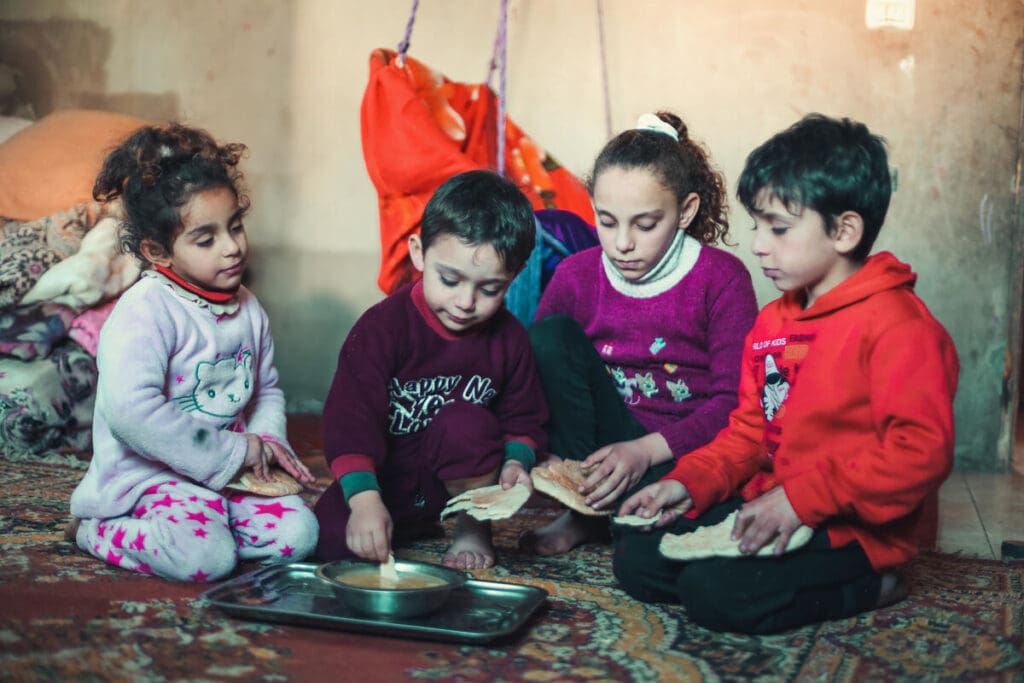Food Lifeline for Desperate Families in Gaza at Risk Without Fuel, WFP Says

ROME – The catastrophic conditions facing hundreds of thousands of people in Gaza risk getting worse still, due to severe fuel shortages which threaten to bring food and other humanitarian operations to a standstill.
“Without additional fuel supplies, bakeries working with the United Nations World Food Programme (WFP) will no longer be able to produce bread. Only two of our contracted bakeries have fuel to produce bread at the moment and tomorrow there might be none,” said U.N. World Food Programme Representative Samer Abdeljaber. “This would be a terrible blow to the thousands of families living in shelters who have been relying on the daily bread deliveries.”
“The people of Gaza need continuous aid delivery at a level that corresponds to the enormous needs. To ease the suffering and enable the delivery of lifesaving assistance, we echo the Secretary General’s appeal for a humanitarian ceasefire,” he added.
Here is the latest information on the U.N. World Food Programme’s operations since the start of the crisis:
- The U.N. World Food Programme has already assisted close to 630,000 people in shelters and in communities across Gaza and the West Bank. The assistance includes emergency food supplies, mainly canned food and fresh bread, and electronic vouchers where shops are open and have food supplies.
- On average 200,000 people in shelters receive the fresh bread provided by the U.N. World Food Programme every day but the fuel shortage is making it ever harder for bakeries to operate. On Wednesday, only 150,000 people received bread.
- Currently, only two U.N. World Food Programme-contracted bakeries are working, compared to 23 at the start of the operation. They are usually producing around six times their usual quantity of bread.
- Fuel is not only critical for bakeries. It is also needed for the trucks that receive the supplies entering through the Rafah crossing and to distribute those supplies across Gaza. In addition, fuel is critical for hospitals and for water desalination and pumping stations.
- Essential food commodities are rapidly running out in Gaza’s shops. Despite more food being available at wholesalers, shops are not able to re-stock due to damaged roads, safety concerns and shortage of fuel. Around 10% of U.N. World Food Programme-contracted shops have run out of food supplies.
- The U.N. World Food Programme is continuing the distribution of electronic food vouchers in Gaza and so far 88% of people who received the vouchers have redeemed them. But the capacity of shops to run the voucher program is diminishing as the stocks run out.
- Nine U.N. World Food Programme trucks carrying over 300,000 pounds of food supplies have already crossed into Gaza since the opening of the Rafah crossing point on Saturday October 21. 39 U.N. World Food Programme trucks are at or near the Egyptian border with Gaza awaiting entry.
- For the U.N. World Food Programme to scale up its operation to reach the planned 1.1 million people in the next two months, 40 trucks need to enter the Gaza Strip daily.
- As needs soar, the U.N. World Food Programme is revising its funding requirement upwards and estimates that it will need at least $100 million for the next 90 days to sustain the emergency response.
# # #
The United Nations World Food Programme is the 2020 Nobel Peace Prize Laureate and the world’s leading humanitarian organization, saving lives in emergencies and using food assistance to build a pathway to peace, stability and prosperity for people recovering from conflict, disasters and the impact of climate change.




